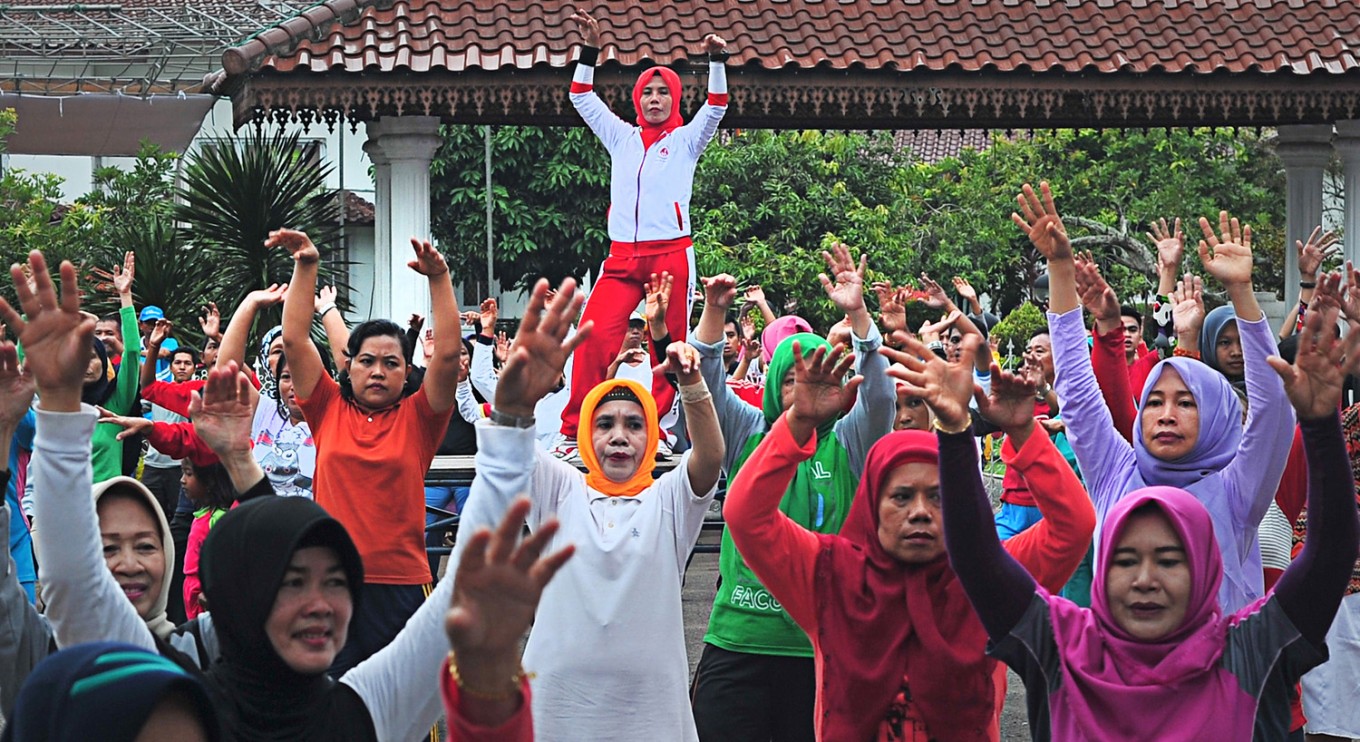Simple, effective habits key to prevent brain stroke: WHO
Change Size
 Healthy lifestyle -- Local residents exercise in an event held by Yayasan Jantung Sehat, a group concerned with heart problem prevention, in Kambang Iwak Park, Palembang, South Sumatra, on Oct. 2. (Antara/Feny Selly)
Healthy lifestyle -- Local residents exercise in an event held by Yayasan Jantung Sehat, a group concerned with heart problem prevention, in Kambang Iwak Park, Palembang, South Sumatra, on Oct. 2. (Antara/Feny Selly)
T
he World Health Organization (WHO) has warned of higher risks of brain stroke and other non-communicable diseases (NCDs) to people with a sedentary and unhealthy lifestyle.
“Simple but effective habits can help prevent brain strokes and other NCDs, such as heart disease and diabetes,” said WHO South-East Asia regional director Poonam Khetrapal Singh during World Stroke Day on Friday.
She said over 11 million strokes occurred every year in low- and middle-income countries, including WHO South-East Asia countries.
“This causes 4 million deaths annually, and leaves approximately 30 percent of survivors seriously disabled. For the 70 percent of survivors who recover, the likelihood of suffering further strokes greatly increases,” Khetrapal Singh said.
In fact, people can prevent brain strokes by reducing most of their lifestyle-related risks.
“Most of the lifestyle-related risks can be reduced to prevent brain strokes. People who smoke should quit, and those who drink heavily should cease. These two factors alone significantly multiply the likelihood of a stroke.”
A diet high in vegetables and fruit and regular exercise are two other measures deemed effective to prevent strokes. “Blood pressure, blood-sugar and cholesterol levels should be checked regularly,” said Khetrapal Singh.
Identifying early warning signs of a stroke is also important to prevent disability or death.
“There are three key signs to watch out for - Is the face drooping on one side? Is there weakness in one arm? Is the speech slurred? If the answer is yes to one or all of the above, the person may be having a stroke and needs urgent medical care,” she added.
“Our health systems must be in a position to act decisively.” (ebf)









